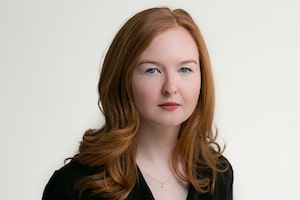
First responders close down Yonge Street in Toronto after a van mounted a sidewalk crashing into a number of pedestrians on April 23, 2018.Nathan Denette/The Canadian Press
The man who killed 10 people and injured 16 others in the Toronto van attack described his actions “with the dissociative quality of someone playing a video game,” court heard at Alek Minassian’s trial on Tuesday.
“It’s such a horrific concept, but I really feel that’s how [Mr. Minassian] was sort of thinking about this,” forensic psychiatrist Alexander Westphal said during his second day of testimony. “He still doesn’t have any emotional connection with what he did.”
Mr. Minassian, 28, admits to using a rented van as a weapon to run down pedestrians on Yonge Street in Toronto on April 23, 2018. But his defence team argues he is not criminally responsible (NCR) for the mass killing because his autism spectrum disorder made him unable to rationally appreciate that what he was doing was wrong.
Dr. Westphal, a Yale University professor who specializes in autism spectrum disorder, has been described as the defence’s key witness, and spoke Tuesday about the ways that autism factors into culpability.
He explained that while Mr. Minassian knew it was against the law to kill people and was aware that many of his victims did lose their lives, his understanding lacked important context. For example, he noted that Mr. Minassian described his actions as “converting life status to death status.”
“It’s not how you or I think about death. When we think about death, we think of the grief dimension … the impact it would have on people who loved the person who has died,” Dr. Westphal said.
Ontario Superior Court Justice Anne Molloy pushed back on his suggestion: “If he kills a person who is alone in the world, with no friends and no relatives and nobody to mourn his loss, it is nevertheless a murder. I don’t know … that to understand that you’ve committed murder and what its consequences are, you have to envision how many people will be upset about it.”
But Dr. Westphal said that while it is “almost conceptually impossible” for a neuro-typical person to separate those ideas, for Mr. Minassian death is more abstract.
“I hate to bring this up, but it’s really like it has the dissociative quality of someone playing a video game,” he said.
Court has heard previously from Canadian forensic psychiatrist Dr. John Bradford, who testified that, in his opinion, a person must have psychosis to be considered eligible for an NCR defence. Mr. Minassian did not have psychosis, multiple witnesses have testified.
Dr. Westphal argued that autism can affect someone similarly.
“Autism alters [one’s] perception and understanding of the world enough to be something that I think is really, really important when discussing culpability,” he said.
Dr. Westphal met with Mr. Minassian on multiple occasions between December, 2019, and January of this year. Video clips from those interviews – which Justice Molloy has previously ordered will not be released publicly – were played in court Tuesday and illustrated what Dr. Westphal described as Mr. Minassian’s “flat” delivery when recounting the mass killing.
In one video clip, he matter-of-factly recalls hitting his 26 victims, one by one. In another, he describes the feeling of “defeat” after he was arrested. (Court has heard previously that he’d unsuccessfully attempted suicide-by-cop.)
“It’s shocking,” Dr. Westphal said about the manner in which Mr. Minassian talks about the attack. “It strikes me not only because of the complete absence of negative emotion like regret or remorse, but … it’s also not celebratory. He’s not deriving pleasure, at least in the way I see it, from telling the story. He’s just [relaying] a set of facts.”
Court has heard previously that Mr. Minassian gave differing explanations for his motive. In the immediate aftermath, he told police that he was inspired by the incel subculture, which is a predominantly online collective of misogynists who blame women for their inability to have sexual relationships.
Later, during his psychiatric evaluations, Mr. Minassian said he was motivated by anxiety about failing at a new job he was scheduled to start.
In another interview clip with Dr. Westphal played Tuesday, Mr. Minassian explains that he was worried that the job explanation would have seemed “random.” The incel explanation, he figured, was something people would talk about “for a lot longer.”
Defence lawyer Boris Bytensky asked Dr. Westphal Tuesday about what impact he believes the internet, and the chatrooms and forums dedicated to these subcultures, might have had on this case.
“I think … it was in that environment that he conceived of what he ultimately did,” Dr. Westphal said. “I think he was saturated in horrific material. It became for him an area … of real focus.”
“It was something he spent a lot of time looking at, thinking about, ruminating on. And I don’t doubt that, in the absence of this sort of thing, this would not have happened,” he continued.
Dr. Westphal’s testimony continues Wednesday.
Our Morning Update and Evening Update newsletters are written by Globe editors, giving you a concise summary of the day’s most important headlines. Sign up today.
 Molly Hayes
Molly Hayes